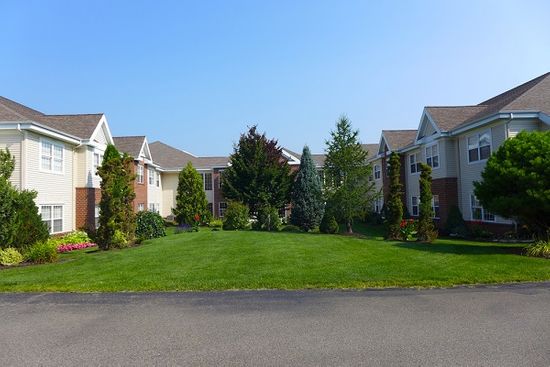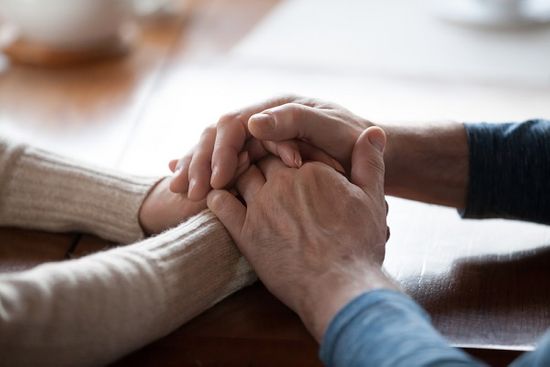Honouring a loved one can come in any number of shapes and sizes. As each one of us has such a unique personality and has lived such a unique life, there's no one-size-fits-all when it comes to remembering a loved one.
For some, an all singing all dancing memorial service with dozens of friends and family at the local pub after an unattended, direct cremation would be the perfect send off. The deceased may have been the sort of person who wanted more of a celebratory farewell, therefore focusing more on the memorial service rather than the funeral itself would be apt.
Whereas for others, a more low-key tree planting at the local park may be more suitable. This could also follow a direct cremation or maybe an attended cremation with the nearest friends and family.
Below we'll direct you to a few pages within this section that will give you some ideas when it comes to remembering a loved one, and we look at some examples to provide you with a little inspiration.
We'll also detail some information about the legal proceedings about what to do when someone dies and signpost you to some support headlines that will help navigate this intensely difficult time.
The most important thing to think about when planning a memorial service or a memorial tribute is your loved one's personality and character. Everything else is secondary.
In the 21st century, there's no need to stick to tradition. You can have a funeral and memorial service that's tailored and unique. So don't be afraid to be unconventional or get a little creative. Just focus on what would make your loved one smile and their heart sing.
If you're looking for some inspiration for a memorial service, a celebration of life or a memorial tribute, below are a few articles that will be of the utmost help.

Understanding the terminology associated with memorial services and memorial tributes can help clarify the process and reduce the planning stress. Some terms such as funeral reception, memorial service and wake may be used interchangeably and may differ from region to region within the UK.
Here are some key terms explained:

A ceremony to honour the deceased without the body present. This can be held anywhere and anytime after the death.

A gathering held after the funeral, used interchangeably with memorial service or funeral reception. Often a wake takes place immediately after the funeral.

A ceremony focused on celebrating the deceased's life, often less formal and more uplifting. This can be held in place of a memorial service or wake.

A gathering held after the funeral, and another term used for a memorial service or a wake.

This means burying the ashes in a cemetery plot or private location, often accompanied by a plaque or marker.

Releasing ashes in a chosen location such as your garden, at sea, or another place meaningful to the deceased.
After a death, knowing what steps you'll need to take, and the order in which to take them, can feel daunting.
But, here at Distinct Cremations, we’ll help and support you through every step from the death of your loved one to the day of the funeral, and we are available 24/7 to lend you a helping a hand - just give us a call anytime on 01543 211997, no matter how big or small your question.
Below are a few resources that may help: a downloadable checklist which has everything you need for when the inevitable happens, and step-by-step guides tailored to where your loved one dies.
Here at Distinct Cremations, we have created a free checklist for you to download which lets you know what you need to do when someone dies.
Download our checklist below or speak to our expert team on 01543 211997 today.
Download free checklist
When someone dies at home, the situation can be particularly distressing. If the death was expected, such as in the case of a terminal illness, you should contact their GP or the nearest doctor to issue a Medical Certificate of Cause of Death (MCCD). If the death was unexpected, call emergency services immediately.
For a detailed guide on what to do when someone dies at home, read our guide.
Find out more
If your loved one passes away in a care home, the staff will usually handle most of the immediate arrangements. They will contact the GP to verify the death and issue the MCCD. They will also inform you as soon as possible and help with the initial steps that need to be taken.
For more information on what to do when sometimes dies in a care home, read our article.
Find out more
When a death occurs in a hospital, you’ll likely be made aware that death is imminent and be able to prepare for it. The medical staff will take care of confirming the death and issuing the Medical Certificate of Cause of Death. The hospital will provide you with the necessary documents and guidance on what to do next.
For details on what to do when someone dies in a hospital, explore our guide.
Find out moreIf you're struggling or would just like someone to talk to, below are a few helplines that do great work and provide a shoulder to lean on for anyone who needs support:
Samaritans (Call: 116 123) - Free 24/7 support for anyone needing any kind of emotional support
Cruse (Call: 0808 808 1677) - Free helpline supporting those suffering with grief
Veterans UK (Call: 0808 191 4218) - Government-run support organisation providing free support for veterans and their families
Age UK (Call: 0800 678 1602) - The UK's leading charity helping millions of older people with support, companionship and advice
The Silver Line (Call: 0800 470 8090) - Free 24/7 helpline for older people struggling with loneliness, sadness or lowness
Below are a few more resources that may come in use when remembering a loved one or when anticpating a death.

If you’re looking at arranging your own funeral or that of a loved one, you’ll need to know exactly how much a funeral costs so that you can make the appropriate arrangements.
Funeral costs
Whether you're considering a hospice for your loved one or you're looking at organising the funeral, it's worthwhile making arrangements as early as possible to help ease the stress slightly.
Preparing for a loved one's death
Whether you're planning for yourself or someone else, funeral plans allow you to cement the funeral arrangements at a less stressful time, and cover the costs in monthly instalments.
View our funeral plansWe offer the highest level of support, but don't just take our word for it. Below are recent reviews from customers who bought a funeral with us.





